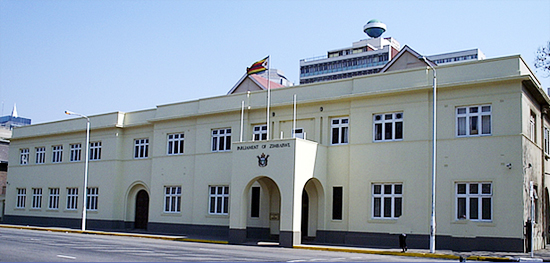Opposition lawmakers have mocked the government for borrowing US$15 million from an ‘Arab Bank’ to fund a Smallholder Agricultural Cluster Project, claiming the sum is an embarrassment and demonstrates the country’s maladministration.
The government, on the other hand, stated Zimbabwe was hampered by sanctions and this was the amount it could afford to take as a loan.
This came to light after Deputy Finance and Development Minister Clemence Chiduwa asked Parliament to ratify a US$15 million loan between the government and the OPEC Fund for International Development (OFID) to fund the Smallholder Agriculture Cluster Project to be implemented in Matabeleland North, Midlands, Mashonaland Central, Mashonaland East and Mashonaland West.
According to Chiduwa, the loan has a tenure of 20 years, including a five-year grace period, will incur a service charge of one percent per year, with principal and interest payments paid twice a year on 15 May and 15 November of each year, for a total of 30 semi-annual installments.
“The Smallholder Agriculture Cluster Project is targeted at increasing agricultural production, and productivity, especially by smallholder farmers, which enhances food and nutrition security, income, increase opportunities for value addition and the development of agro-business value chains,” he said in Parliament Wednesday
Tendai Biti, MP for Harare East, said there is something wrong with the country for taking out such a small loan.
“Zimbabwe is a sovereign country that has been independent for 43 years and our Gross Domestic Product (GDP) is around US$18 billion. To sit in this House seeking to ratify a loan of US$15 million, there is something wrong. We are failing somewhere,” he said.
“US$15 million is not even a loan that can be borrowed by Econet, Delta Corporation, LaFarge Cement, Old Mutual, the top listed companies, the blue chip companies of this country. It is petty cash. Small SMEs that want to develop will borrow US$15 million but we are a country. How can we borrow US$15 million? It is an embarrassment; it is absolutely ridiculous that we can borrow US$15 million as a sovereign republic.”
Biti, the former finance minister, stated that Zimbabwe’s GDP in 1980 was US$7 billion, Kenya’s GDP was US$7 billion, and Zambia’s GDP was roughly US$3.86 billion in 1980.
In 2023, Kenya’s GDP is now US$264 billion, Zambia’s GDP is US$64 billion yet Zimbabwe was stuck at US$18 billion.
“Why do we have this developmental deficit; why do we have this growth deficit? Those are the issues that we need to address,” he said.
“We are not united, we do not have a common vision. We pursue politics of exclusion, and politics of intolerance and that is the challenge. We beat each other up, prevent each other from having rallies and meetings, our politics is ugly, that is what we need to address.”
Biti said Zimbabwe had a debt cap spelt in Section 11 of the Public Debt Management Act Number 4 of 2015, where any loan to be borrowed must not increase the national debt to be over 70 percent of the GDP.
“At the present moment, our debt ratio is already 112 percent of GDP. We are already over 50 percent,” he said.
Dzivarasekwa MP, Edwin Mushoriwa agreed that the US$15 million loan is not a figure Zimbabwe should be borrowing.
“Primarily, as a nation, we are a country that has got the capacity to generate sufficient resources to finance our farmers. If you look at the presentation by the Hon. Minister, he advised that the intention of borrowing USD15 million was to support the poor farmers in the five provinces that he has mentioned. The only provinces that were excluded are Manicaland, Masvingo, Matabeleland South,” he said.
“However, if you do a mathematical analysis of the quantum, the USD15 million, if you look at the five provinces, say possibly we have a minimum of three million of poor farmers in those five provinces. If you divide three million into 15 million, it means each farmer is likely to get US$5. This is the reason why we are simply saying this amount of money is too little,” he said.
Kambuzuma MP, Willias Madzimure, was curious about the interaction that existed between those in charge of administering the loan and those in charge of monitoring and evaluating the success of government projects.
“If you know the targeted population, you would then know that the US$15 million is too little for it to impact on the living standards of those people,” he said.
However, the deputy minister said due to sanctions, Zimbabwe was limited in terms of what it can do.
“We are hamstrung with sanctions and we are also developing our capacity as a country that is under sanctions,” he said, claiming that other provinces were previously covered when Parliament ratified a financing agreement under OFID and the Small Holder Irrigation Revitalisation Plan, which encompassed Matabeleland South, Masvingo, Midlands, and Manicaland.
“For now the loan of US$15 million for us is not too small – it is a very significant amount which I think is going to make a difference to our farmers and people who are living in the rural communities.”

